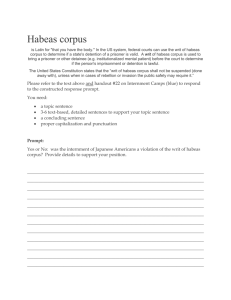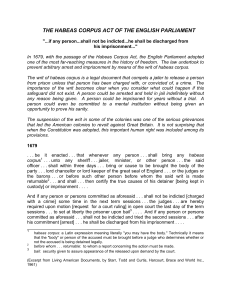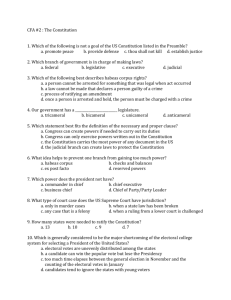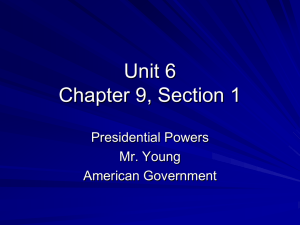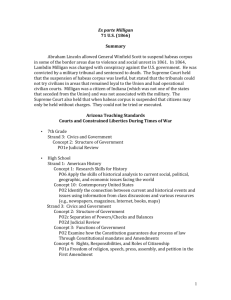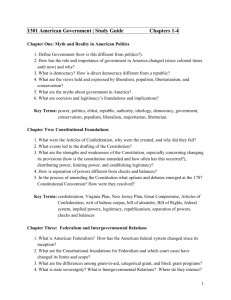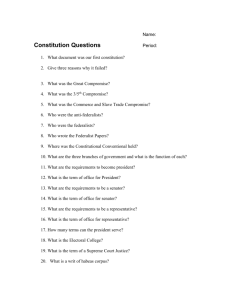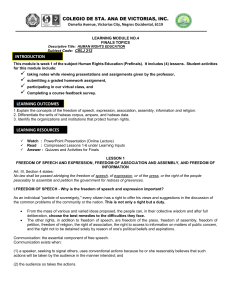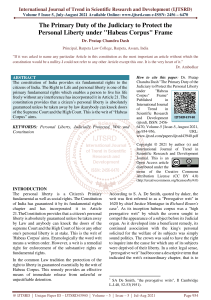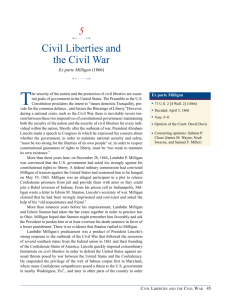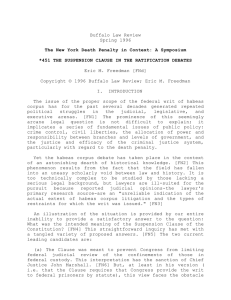civil liberties and civil rights
advertisement
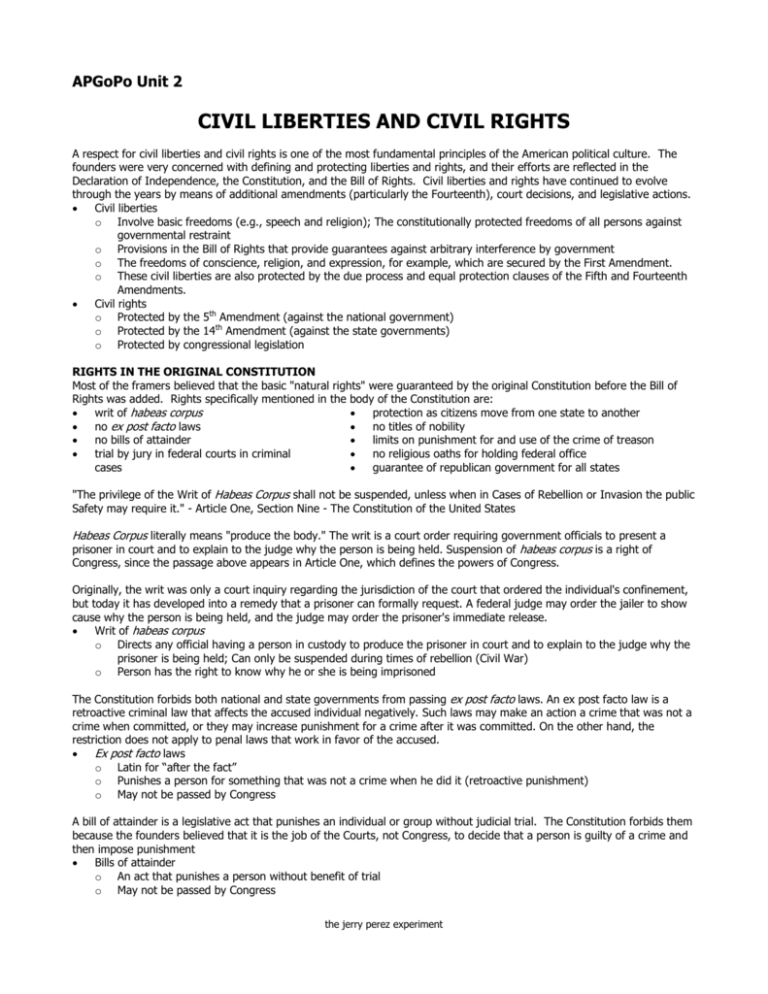
APGoPo Unit 2 CIVIL LIBERTIES AND CIVIL RIGHTS A respect for civil liberties and civil rights is one of the most fundamental principles of the American political culture. The founders were very concerned with defining and protecting liberties and rights, and their efforts are reflected in the Declaration of Independence, the Constitution, and the Bill of Rights. Civil liberties and rights have continued to evolve through the years by means of additional amendments (particularly the Fourteenth), court decisions, and legislative actions. Civil liberties o Involve basic freedoms (e.g., speech and religion); The constitutionally protected freedoms of all persons against governmental restraint o Provisions in the Bill of Rights that provide guarantees against arbitrary interference by government o The freedoms of conscience, religion, and expression, for example, which are secured by the First Amendment. o These civil liberties are also protected by the due process and equal protection clauses of the Fifth and Fourteenth Amendments. Civil rights o Protected by the 5th Amendment (against the national government) o Protected by the 14th Amendment (against the state governments) o Protected by congressional legislation RIGHTS IN THE ORIGINAL CONSTITUTION Most of the framers believed that the basic "natural rights" were guaranteed by the original Constitution before the Bill of Rights was added. Rights specifically mentioned in the body of the Constitution are: writ of habeas corpus protection as citizens move from one state to another no ex post facto laws no titles of nobility no bills of attainder limits on punishment for and use of the crime of treason trial by jury in federal courts in criminal no religious oaths for holding federal office cases guarantee of republican government for all states "The privilege of the Writ of Habeas Corpus shall not be suspended, unless when in Cases of Rebellion or Invasion the public Safety may require it." - Article One, Section Nine - The Constitution of the United States Habeas Corpus literally means "produce the body." The writ is a court order requiring government officials to present a prisoner in court and to explain to the judge why the person is being held. Suspension of habeas corpus is a right of Congress, since the passage above appears in Article One, which defines the powers of Congress. Originally, the writ was only a court inquiry regarding the jurisdiction of the court that ordered the individual's confinement, but today it has developed into a remedy that a prisoner can formally request. A federal judge may order the jailer to show cause why the person is being held, and the judge may order the prisoner's immediate release. Writ of habeas corpus o Directs any official having a person in custody to produce the prisoner in court and to explain to the judge why the prisoner is being held; Can only be suspended during times of rebellion (Civil War) o Person has the right to know why he or she is being imprisoned The Constitution forbids both national and state governments from passing ex post facto laws. An ex post facto law is a retroactive criminal law that affects the accused individual negatively. Such laws may make an action a crime that was not a crime when committed, or they may increase punishment for a crime after it was committed. On the other hand, the restriction does not apply to penal laws that work in favor of the accused. Ex post facto laws o Latin for “after the fact” o Punishes a person for something that was not a crime when he did it (retroactive punishment) o May not be passed by Congress A bill of attainder is a legislative act that punishes an individual or group without judicial trial. The Constitution forbids them because the founders believed that it is the job of the Courts, not Congress, to decide that a person is guilty of a crime and then impose punishment Bills of attainder o An act that punishes a person without benefit of trial o May not be passed by Congress the jerry perez experiment
